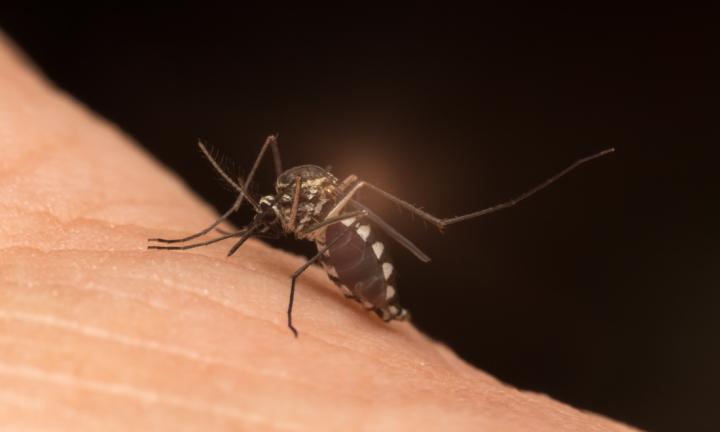
Credit: Colourbox.
Every year, more than 400,000 people die from malaria, the majority are children under the age of five years old, who die from a disease which affects more than 200 million people a year.
The most serious form of the disease is cerebral malaria which may cause severe neurological consequences and, in the worst-case scenario, result in death. The precise mechanism behind cerebral malaria has remained a mystery – until now, says a research group from the Department of Immunology and Microbiology at the University of Copenhagen.
‘In our study, we show that a certain type of the malaria parasite can cross the blood-brain barrier by utilising a mechanism that is also used by immune cells in special cases. It is a major breakthrough in the understanding of cerebral malaria, and it partly explains the disease process seen in brain infections’, says Professor Anja Ramstedt Jensen who, together with her colleague, Assistant Professor Yvonne Adams, has headed the study.
Malaria mimics immune cells
The blood-brain barrier is the guarding barrier between the brain´s blood vessels and the cells and other components that make up brain tissue. The barrier ensures that only certain molecules are allowed to pass through to the brain cells. It prevents harmful substances and microorganisms from crossing, but, in some cases, it allows the white blood cells which are an important part of our immune system to pass through.
‘The malaria parasite takes up residence in red blood cells. However, since red blood cells cannot cross the blood-brain barrier, it has so far been our understanding that malaria parasites could not enter into brain tissue. Now we can show that the parasite is able to mimic the mechanism that the immune system’s white blood cells use to cross the barrier, and we now know that this helps to explain the disease mechanism behind cerebral malaria’, says Anja Ramstedt Jensen.
To investigate the mechanism behind cerebral malaria, the researchers have created a 3D model of the blood-brain barrier consisting of, among other things, brain cells which they have grown in cell culture. The method has so far been used in other contexts to study which drugs and peptides can cross the blood-brain barrier. But this is the first time the method has been used to study infections.
‘This is completely new knowledge within malaria research. Previously, we have only been able to study how red blood cells with the malaria parasite bind to brain cells, but not whether they can penetrate brain cells’, says Assistant Professor Yvonne Adams.
Based on this new method, the researchers are now in the process of further studying the molecular details that explain how malaria parasites penetrate the so-called endothelial cells, which are the cells in the blood-brain barrier that allow or reject access of molecules to our brain tissue.
‘In addition, we are expanding our studies and the application of the method to other diseases such as Lyme disease, Borrelia, which is the most common cause of bacterial brain infection in Denmark and, among other things, causes meningitis and other forms of inflammation in the central nervous system’, says Anja Ramstedt Jensen.
###
Media Contact
Assistant Professor Yvonne Adams
[email protected]
Original Source
https:/
Related Journal Article
http://dx.




